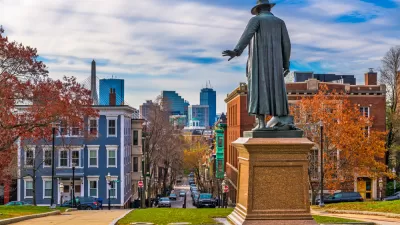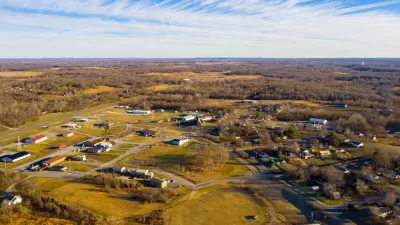The kinds of words and arguments people use to describe blight, foreclosure, and eviction reveals a lot of society's biases.

Kaeleigh Herstad provides a semantic analysis of rhetoric on the subjects of blight, foreclosure, and eviction in Detroit to reveal "local attitudes towards and concepts of ownership, poverty, race, and social justice."
Herstad spent two years documenting local media coverage of Detroit’s blight and foreclosure crises, and has identified a few pervasive themes. Herstad only needs one case study to illustrate these themes—the comments from a recent Detroit News article "about a negligent property owner, Jeffrey Cusimano, who does not pay property taxes or keep his properties up to code, yet faces no consequences for his actions."
Herstad identifies the following comments left on the article as indicative of larger themes, which she details thoroughly in the source article:
- “When someone plays the system like a fiddle, I tend to blame the system.”
- “Don’t you think that 19 evictions is more a reflection of the quality of tenants and their attitudes towards paying honest debts than it is of the system?”
- “And yet they have a dish on the roof.”
- “Why would anyone move in there in the first place? Did they expect it to magically transform? Hardly. It’s just an excuse to not pay.” and “Renters don’t take care of anything! Move in, destroy, move out.”
- The city should be giving this guy an award for even trying in Detroit. If he didn’t own these houses they would just be more shells to dump bodies in…” and “Who cares? Detroit is a Sewer!” and “Detroilet”
FULL STORY: The Rhetoric of Foreclosure and Eviction in Detroit

Alabama: Trump Terminates Settlements for Black Communities Harmed By Raw Sewage
Trump deemed the landmark civil rights agreement “illegal DEI and environmental justice policy.”

Study: Maui’s Plan to Convert Vacation Rentals to Long-Term Housing Could Cause Nearly $1 Billion Economic Loss
The plan would reduce visitor accommodation by 25% resulting in 1,900 jobs lost.

Planetizen Federal Action Tracker
A weekly monitor of how Trump’s orders and actions are impacting planners and planning in America.

Restoring Northern India’s Himalayan ‘Water Temples’
Thousands of centuries-old buildings protect the region’s natural springs and serve as community wells and gathering places.

Milwaukee to Double Bike Share Stations
Bublr Bikes, one of the nation’s most successful, will add 500 new e-bikes to its system.

DC Extends Application Window for Outdoor Dining Permits
District restaurants will have until the end of November to apply, but businesses with permits in rush hour parking lanes must end operations on July 31.
Urban Design for Planners 1: Software Tools
This six-course series explores essential urban design concepts using open source software and equips planners with the tools they need to participate fully in the urban design process.
Planning for Universal Design
Learn the tools for implementing Universal Design in planning regulations.
Caltrans
Smith Gee Studio
Institute for Housing and Urban Development Studies (IHS)
City of Grandview
Harvard GSD Executive Education
Toledo-Lucas County Plan Commissions
Salt Lake City
NYU Wagner Graduate School of Public Service





























